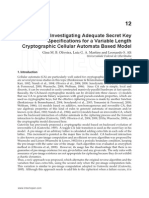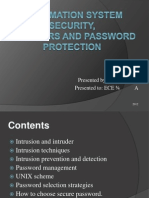0% found this document useful (0 votes)
50 views3 pagesQuantum Computing Cryptography Research Paper v2
Quantum computing poses a significant threat to traditional cryptography by enabling the rapid breaking of widely used encryption algorithms, such as RSA and ECC, through algorithms like Shor's. This paper discusses the principles of quantum computing, its implications for current cryptographic methods, and the urgent need for quantum-resistant cryptography. It highlights the challenges and opportunities presented by quantum technologies in securing communications and data in a post-quantum world.
Uploaded by
testingbug78Copyright
© © All Rights Reserved
We take content rights seriously. If you suspect this is your content, claim it here.
Available Formats
Download as PDF, TXT or read online on Scribd
0% found this document useful (0 votes)
50 views3 pagesQuantum Computing Cryptography Research Paper v2
Quantum computing poses a significant threat to traditional cryptography by enabling the rapid breaking of widely used encryption algorithms, such as RSA and ECC, through algorithms like Shor's. This paper discusses the principles of quantum computing, its implications for current cryptographic methods, and the urgent need for quantum-resistant cryptography. It highlights the challenges and opportunities presented by quantum technologies in securing communications and data in a post-quantum world.
Uploaded by
testingbug78Copyright
© © All Rights Reserved
We take content rights seriously. If you suspect this is your content, claim it here.
Available Formats
Download as PDF, TXT or read online on Scribd
/ 3






















































































